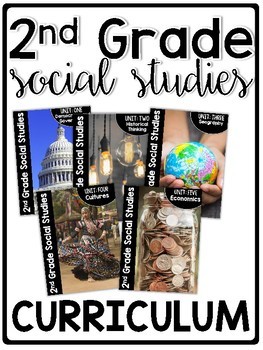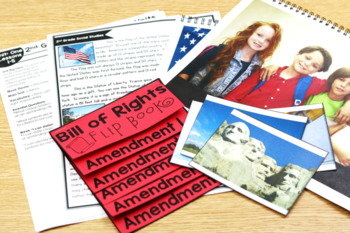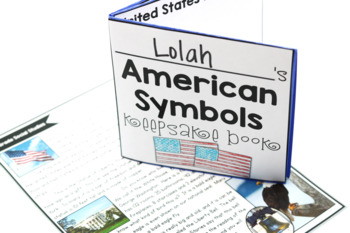2nd Grade Social Studies Curriculum Bundle
- Zip
What educators are saying
Products in this Bundle (5)
Description
Save BIG when you purchase the bundle! The bundle is on sale for $10 off. The individual units are $10 each for $50!
What is 2nd Grade Social Studies Curriculum?
2nd Grade Social Studies Curriculum is an engaging social studies curriculum with young learners in mind! 2nd Grade Social Studies encourages young learners to think “outside the box” and prove their thinking through hands-on and engaging learning experiences. 2nd Grade Social Studies is based upon five units: Government and Democracy, Historical Thinking, Geography, Cultures and Economics. Each unit is broken down to 10 lessons and each lesson can take from 1-2 days to complete. The units cover at least two weeks of instruction. The lesson plan has the listed objective, “I can” statement, vocabulary, detailed activity lesson plans and all necessary student follow-up practice sheets.
2nd Grade Social Studies encourages a daily routine, but please know that as the teacher you can adjust the lessons and make them best work for your daily schedule and time allotment. Within each lesson the students will partake in a quick lesson opener, whole-group skill lesson and the students will take part in a follow-up task. Please note that all student follow-up practice sheets can be shrunk and placed into a student journal. You can also choose to have students track their daily activities in their journal with or without the included response sheets.
What is included?
- 2 weeks of lesson plans per unit (10 days of instruction)
- Daily printable practice sheets
- Vocabulary Cards
- *Whiteboard* Books (1-2 books per unit)
- Journal labels
- Necessary cards/teaching add-ons
- Crafts and SO much more (view the preview)
What units are included?
Unit One: Democracy and Government
Unit Two: Historical Thinking
Unit Three: Geography
Unit Four: Cultures
Unit Five: Economics
Let's Take a Look at the Lessons!
Unit 1: Democracy and Government
Unit 1- Lesson 1: Citizens
Unit 1- Lesson 2: American Symbols
Unit 1- Lesson 3: Bill of Rights
Unit 1- Lesson 4: Citizen Responsibilities
Unit 1- Lesson 5: Laws
Unit 1- Lesson 6: Democracy
Unit 1- Lesson 7: Branches of Government
Unit 1- Lesson 8: Government Officials
Unit 1- Lesson 9: The President
Unit 1- Lesson 10: Voting
Essential Questions:
*What characteristics make up an upstanding citizen?
*What symbols are important to citizens in our community?
*What are the 3 branches of government and what role does each branch play?
*Why is it important for citizens to be informed? How do they influence their government?
Unit 2- Lesson 1: Thomas Edison
Unit 2- Lesson 2: Benjamin Franklin
Unit 2- Lesson 3: Alexander Bell
Unit 2- Lesson 4: The Wright Brothers
Unit 2- Lesson 5: Henry Ford
Unit 2- Lesson 6: Helen Keller
Unit 2- Lesson 7: Rosa Parks
Unit 2- Lesson 8: Susan B. Anthony
Unit 2- Lesson 9: Sacajawea
Unit 2- Lesson 10: Amelia Earhart
Essential Questions:
*How have the lives of people changed throughout the course of history?
*How do inventors impact the world?
*Why is it important to learn about pioneers in their field?
*How do pioneers impact the world around them?
Unit 3- Lesson 1: Seven Continents
Unit 3- Lesson 2: Five Oceans
Unit 3- Lesson 3: Longitude and Latitude
Unit 3- Lesson 4: Cardinal Directions
Unit 3- Lesson 5: Transportation
Unit 3- Lesson 6: State Features
Unit 3- Lesson 7: USA Physical Features
Unit 3- Lesson 8: Map Key
Unit 3- Lesson 9: Communities
Unit 3- Lesson 10: Constructing a Map
Essential Questions:
*What are the continents and oceans of the world?
*How has the advancement of transportation and communication facilitated the movement of people and goods around the world?
*What are the physical characteristics of the state I live in?
*What features are important to include on a map?
Unit 4- Lesson 1: Culture (define)
Unit 4- Lesson 2: Folktales (African American)
Unit 4- Lesson 3: Folktales (Native American)
Unit 4- Lesson 4: Traditions
Unit 4- Lesson 5: Cultural Food
Unit 4- Lesson 6: Cultural Clothing
Unit 4- Lesson 7: Cultural Housing
Unit 4- Lesson 8: Cultural Games
Unit 4- Lesson 9: Exploring Cultures
Unit 4- Lesson 10: Exploring Cultures
Essential Questions:
*Why do cultures pass folktales from generation to generation?
*What is culture?
*How are cultures similar and different?
*What is important to me and my culture?
Unit 5- Lesson 1: Goods
Unit 5- Lesson 2: Services
Unit 5- Lesson 3: Producers
Unit 5- Lesson 4: Consumption and Production
Unit 5- Lesson 5: Cost-Benefit
Unit 5- Lesson 6: Scarcity
Unit 5- Lesson 7: Saving
Unit 5- Lesson 8: Income/Wages
Unit 5- Lesson 9: Labor
Unit 5- Lesson 10: Money System
Essential Questions:
*What is the relationship between producers and consumers?
*What is economy?
*Why is it important to have a job?
*What determines the cost of a product or service?
What about the standards?
There is no one set of standards for social studies. This unit has been based upon the compilation of many state standards. Those state standards were cross-checked to verify the most common occurring standards. If you have specific standards questions please reference the detailed lesson overview list above and/or email littlemindsatworkllc@gmail.com
Be sure to view the preview for lots of pictures!
Are you interested in my additional science curriculum program for second grade?
Visit my blog Little Minds at Work
Follow me on Facebook





